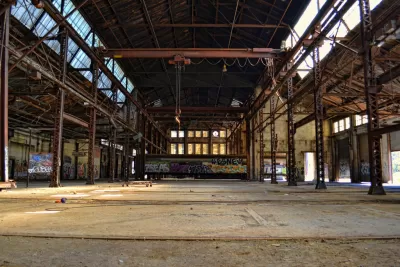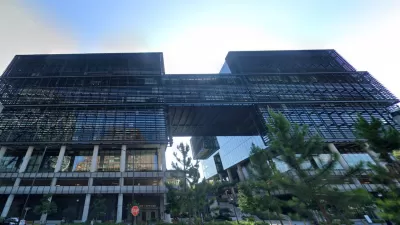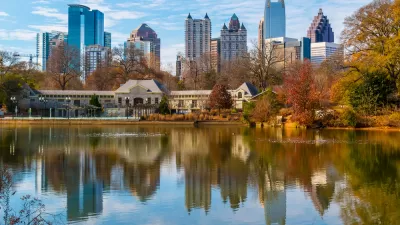Currently owned by the state of Georgia, Atlanta's Pullman Yard may get a lot harder (but not impossible) to redevelop. Atlanta's Urban Design Commission is considering a proposal to grant protected status to the property.

Located in an area of Atlanta undergoing rapid redevelopment, Pullman Yard is "a collection of 11 commercial buildings located on the largest single tract of land in the rapidly redeveloping Kirkwood neighborhood, east of Little Five Points." Now, the city's Urban Design Commission is considering a historic designation for the entire site.
David Pendered writes, "The property has been out of use since the state closed in 1993 an oil-fired steam-engine excursion train it had housed there. [...] The site has been the subject of several redevelopment efforts since the state bought it in 1990 for almost $1.7 million, according to DeKalb County tax records."
Valued at $7.4 million, the site has been subject to several unconsummated redevelopment efforts. "Now, the Atlanta Urban Design Commission is considering a proposal to designate the buildings and the entire site as a Landmark Building/Site." Instead, "such a designation would not preclude redevelopment, according to the relevant Atlanta municipal code. The designation would create a number of administrative hurdles that a redevelopment plan would have to overcome."
FULL STORY: Atlanta may designate Pullman Yard an historic site to regulate any redevelopment

Trump Administration Could Effectively End Housing Voucher Program
Federal officials are eyeing major cuts to the Section 8 program that helps millions of low-income households pay rent.

Planetizen Federal Action Tracker
A weekly monitor of how Trump’s orders and actions are impacting planners and planning in America.

Ken Jennings Launches Transit Web Series
The Jeopardy champ wants you to ride public transit.

California Invests Additional $5M in Electric School Buses
The state wants to electrify all of its school bus fleets by 2035.

Austin Launches $2M Homelessness Prevention Fund
A new grant program from the city’s Homeless Strategy Office will fund rental assistance and supportive services.

Alabama School Forestry Initiative Brings Trees to Schoolyards
Trees can improve physical and mental health for students and commnity members.
Urban Design for Planners 1: Software Tools
This six-course series explores essential urban design concepts using open source software and equips planners with the tools they need to participate fully in the urban design process.
Planning for Universal Design
Learn the tools for implementing Universal Design in planning regulations.
Ada County Highway District
Clanton & Associates, Inc.
Jessamine County Fiscal Court
Institute for Housing and Urban Development Studies (IHS)
City of Grandview
Harvard GSD Executive Education
Toledo-Lucas County Plan Commissions
Salt Lake City
NYU Wagner Graduate School of Public Service





























